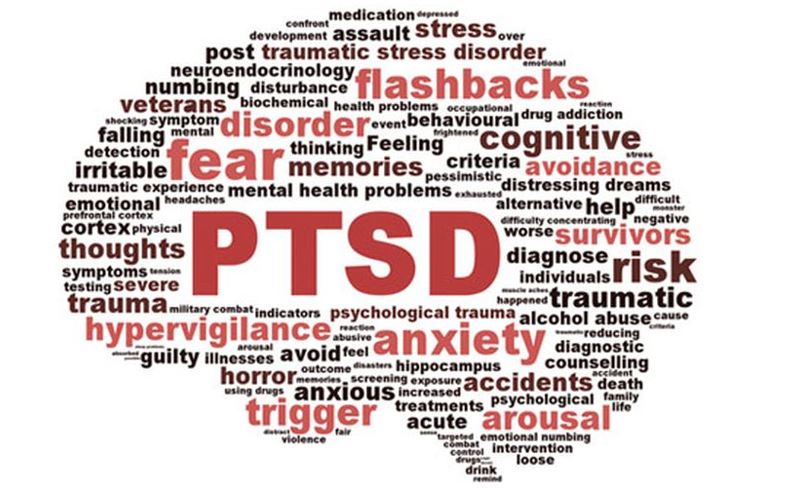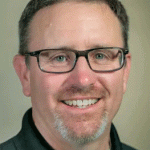Veteran’s Corner

By Ryan Armagost
The Surveyor
June has many dates and events that bring remembrance to our heroes of military history. June 6 was the 75th Anniversary of D-Day on June 6, 1944. June 12 is recognized as Women Veterans Day. It was on that day in 1948 President Harry S. Truman signed into law the Women’s Armed Services Integration Act, enabling women to serve as regular members of the armed forces. On June 14, 1777 (Flag Day), John Adams introduced a resolution before Congress mandating a United States flag with 13 stripes that alternate red and white and 13 white stars on a blue field for the 13 United States. Many people don’t realize June is also Post Traumatic Stress Disorder (PTSD) Awareness Month, with Senate approval in 2014. June 27 was recognized as PTSD Awareness Day, with Senate approval in 2010.
I’d like to preface I am not an expert or medical professional talking about this disorder. I am simply a person who has experienced trauma and since dealt with my own levels of PTSD. PTSD has many names and many faces. With veterans, it can be called Post Traumatic Stress, Combat Stress, Fog of War, etc. Emotional trauma can be the result of anything negative your mind endured which isn’t a natural stress your mind can process. This trauma can range from any of your senses taking on something your mind creates an extreme reaction to and stores as a vivid memory. Many of those memories of sights, sounds, smells, pain, sensation, can produce triggers that reintroduce those memories throughout the rest of a person’s life.
There is a unique distinction of combat veterans with PTSD from first responders, victims of violence, accident/incident survivors, etc. PTSD with first responders is that of what is endured while doing your job and being expected to keep your work and home lives separate. Victims and survivors struggle regularly with situations that remind them of the trauma they’ve endured. The unique distinction of combat veterans is many of them spend extended time in the foreign environment in which they have to endure trauma on a day-to-day basis. While others have to separate work and home, combat veterans have to accept work as home for an unknown or indefinite amount of time. The only correlation that can be maintained of what actual home is like is a phone call or letter from home. The sense of normal for a combat veteran is accepting their current home includes being shot at, blown up, or otherwise attacked at any given time – the fact you could be victim to a mortar attack while you sleep or an ambush while you’re on a mission. Many accept each day could be their last while trying to comfort family at home that they’ll be home soon. Some even prepare a letter that can be given to their loved ones should they not make it home.
While this is not meant to draw praise or sympathy from anyone, I hope everyone can take a moment to put themselves in the shoes of those who volunteered to serve in a combat zone or especially those who were drafted and ordered to serve in a combat zone. I also do not intend to downplay any form of PTSD, as it all needs to be treated and worn with the same regard and attention. PTSD is a wound that is not visible in most people who struggle with it. It is not something most will share their struggles with others. PTSD is often internalized and treated as a stigma, which leads to self-medication and substance abuse. The coping mechanisms and ability to adjust to “normal” life and situations seems to diminish and sometimes results in complete isolation and seclusion from others. This can turn to depression and anxiety getting out of control as well. Many people cannot endure all of these issues and choose suicide as a way out.
This is a dark and morbid topic of discussion, but needs to have awareness in order to bring light and hope to people who feel hopeless. If you are a combat veteran struggling with PTSD, reach out and seek someone who can listen. They don’t have to understand what you’ve been through. Just talk to someone who is good at listening. There are many organizations that do this at no cost to you –Veterans Affairs, Military One Source, Vet Centers, Veteran Service Officers, to name a few. If you know someone with PTSD, check in on them regularly and get a genuine assessment of how they’re doing. Remember the families of those who struggle with PTSD are also likely struggling as well. With PTSD, often comes anger, intolerance, anxiety, paranoia and mood disorders. Please keep those families in your thoughts and check in on them regularly as well. If anyone needs assistance to attain help or resources for PTSD, please feel free to reach out to me at [email protected]. We lose too many to PTSD and resulting mental illness. Awareness brings recognition, and recognition can bring treatment with life changing results.
- April, 11 2019

Highest rates of rabies in the state ...
By Amber McIver-Traywick The Surveyor As temperatures begin to rise both human residents of Larimer...
- March, 15 2019

CDOT Partners with AAA, City and Coun...
Special to the Surveyor Whether you plan to enjoy green beer or another type of...
- September, 27 2018

LCSO investigates shooting in Berthou...
By Amber McIver-Traywick The Surveyor Shooting On Sept. 25, 2018, at approximately 7:01 p.m., the...
- April, 11 2024

Breakdown of Berthoud’s first draft f...
By Brendan Henry The Surveyor Talk of short-term rental (STR) policies in Berthoud’s town board...
- March, 19 2015

Heron Pointe opposition turns in seco...
First petition deemed insufficient due to missing information from signers By John Gardner The Surveyor...
- August, 03 2017

Letter to the Editor: Response to the...
This is in response to an article written by the mayor on mosquitoes and WNV....

POLICEBLOTTER
Community News
Northern Water sets C-BT quota at 70% for 2024
Community News

Emotions run high during Revere Property hearing
Community News
Snowpack at 119% above normal
Community News

Karspeck to serve third term as Berthoud mayor
Community News

OPINION – No bitchin’ allowed
Community News
Roy Tripi to become principal of BHS on July 1
Community News
COMMUNITY CALENDAR:
Community Calendar – add an event
Homestead Fine Art Gallery First Fridays OPEN HOUSE
03 May 4:00 PM - 7:00 PM
Homestead Fine Art Gallery First Fridays OPEN HOUSE
07 Jun 4:00 PM - 7:00 PM
Homestead Fine Art Gallery First Fridays OPEN HOUSE
05 Jul 4:00 PM - 7:00 PM
Homestead Fine Art Gallery First Fridays OPEN HOUSE
02 Aug 4:00 PM - 7:00 PM
Homestead Fine Art Gallery First Fridays OPEN HOUSE
06 Sep 4:00 PM - 7:00 PM
Homestead Fine Art Gallery First Fridays OPEN HOUSE
04 Oct 4:00 PM - 7:00 PM

